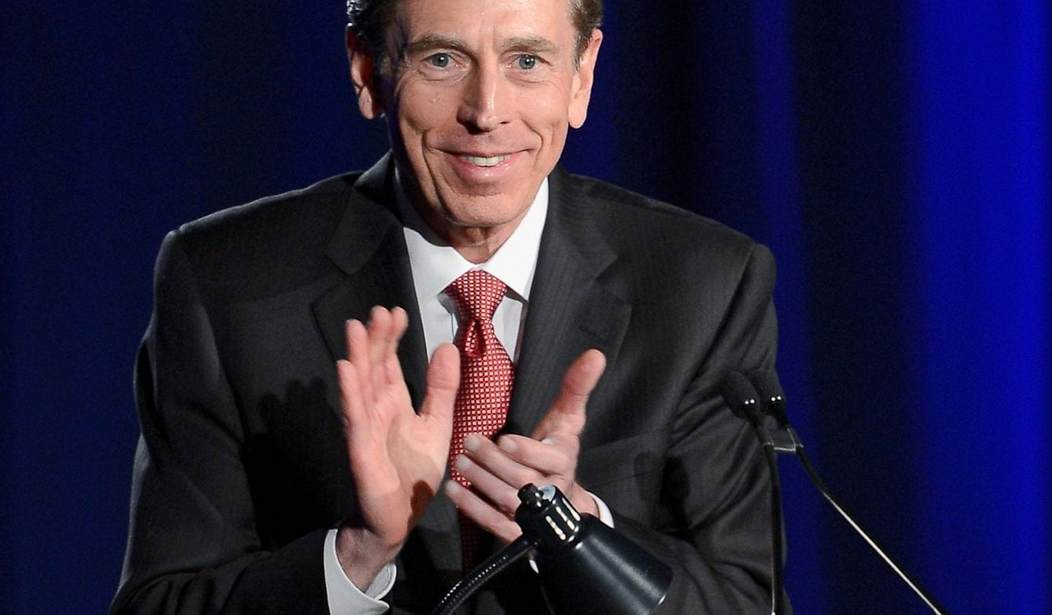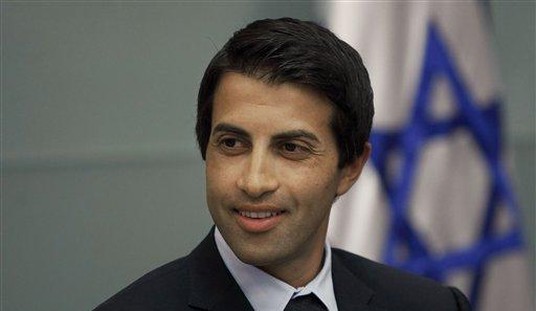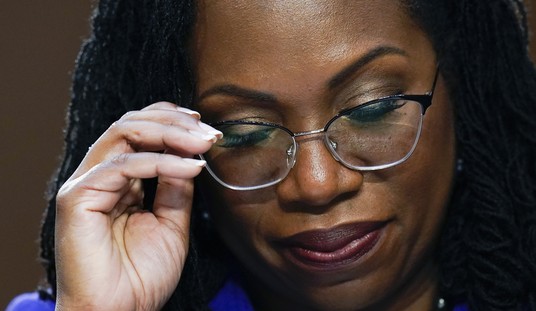Last week’s Washington Post bombshell, the news that the Justice Department has given immunity from prosecution to the former State Department staffer who maintained Hillary Clinton’s “homebrew” email server, is forcing Mrs. Clinton and her apologists to alter their media strategy.
For months it has been obvious that a serious criminal investigation of the former secretary of State’s reckless mishandling of classified information has been underway. Yet Camp Clinton has maintained that the government is merely engaged in a “security inquiry” that is focused on the physical server itself — not a probe of criminal suspects. This has never made sense. The FBI, which has assigned many agents to the case, is in the criminal investigation business.
Plus, when the now-immunized former staffer, Bryan Pagliano, invoked his Fifth Amendment privilege in refusing to testify before the House Benghazi committee, it signaled that he feared truthful answers would incriminate him.
Now with Pagliano apparently poised to cooperate with the FBI, the claim that Mrs. Clinton is not a criminal suspect is untenable. So Clinton and her supporters are changing tack: instead of implausibly insisting there is no crime to investigate, they argue that there is no crime worth prosecuting.
This narrative was first floated a few months ago. The story goes like this: retired General David Petraeus, the former CIA director, committed a classified information offense that — according to Clintonistas — was far more serious than Mrs. Clinton’s conduct, yet Petraeus was permitted to plead guilty to a single misdemeanor count. Ergo, a prosecution of Mrs. Clinton over her comparatively minor misconduct cannot be justified.
When Camp Clinton first began spinning its Petraeus yarn, I explained that it relies on Anne M. Tompkins, the former U.S. attorney for western North Carolina who oversaw the prosecution against the general. Tompkins, who just happens to be a Hillary Clinton donor, exploits the aura of authority from her obvious familiarity with the Petraeus case to suggest that she is a reliable source on Clinton case — which she dutifully portrays as weak. To note just the most obvious problems with her analysis: even when she worked for the government (which she no longer does), Tompkins never had anything to do with the Clinton investigation; and she can’t possibly know the full extent of the FBI’s evidence because the probe is ongoing and, quite properly, the FBI is not commenting publicly.
Moving right along, though, Ms. Tompkins relates that, despite his serious crimes, General Petraeus was permitted — by Tompkins, of course — to plead guilty to a mere misdemeanor. Thus, she reasons, it would be unthinkable to file charges — particularly, harsher felony charges — against Clinton, the purportedly lesser offender.
Precious, no?
The Obama-appointed prosecutor who plea-bargained egregious felonies down to a slap on the wrist for the Obama-appointed CIA director would have us view her irresponsible charging decision as the gold standard for evaluating similar cases.
And how’s this for a small world: the defense lawyer who beguiled Tompkins into giving Petraeus a near-total pass just happens to be David Kendall — Mrs. Clinton’s lawyer.
Apparently, you are to conclude that two different cases must be treated alike if the two prominent suspects hire the same well-connected Washington lawyer, as if Mr. Kendall’s rolling of Ms. Tompkins somehow entitles him to roll the Clinton investigators.
In any event, Camp Clinton’s Petraeus narrative is laughable.
To be sure, Petraeus’s offenses were serious. As the Post reports:
[The] classified information he shared with his biographer contained top secret code words, identities of covert agents, war strategy and intelligence capabilities.
He also lied to the FBI during the investigation. The Post says prosecutors threatened to charge him with three felonies, involving espionage act violations and false statements. The fact that Tompkins pled the case out on the cheap does not diminish the gravity of Petraeus’s misconduct.
Still, Clinton’s misconduct is more egregious than Petraeus’s. The latter only shared top secret information with a single person: Paula Broadwell, his biographer/paramour. Ms. Broadwell, a West Point grad and former military officer, had a security clearance (although not one sufficient to be given access to the highly classified information in Petraeus’s journals). There is no indication she ever shared the information with anyone else, much less in her hagiography of Petraeus.
To be sure, there are similarities in the two cases — but even these militate in favor of a criminal prosecution against Clinton.
For example, her emails include communications with President Obama. Although the Post story does not mention it, Petraeus’s classified journals also contained summaries of his communications with President Obama — a fact that was cited by the Justice Department’s explanation to the court of the factual basis for charging Petraeus with a crime. (See my Feb. 3, 2016, column.)
In addition, while Clinton robotically stresses that her classified emails were not “marked classified,” neither were Petraeus’s diaries. He was charged anyway and pled guilty, because he was well-aware (as are all high-ranking national security officials) that the lack of classified markings is not a defense.
Where the Petraeus and Clinton cases are dissimilar, the facts show Clinton’s misconduct was far more extensive and damaging to national security.
Unlike Petraeus’s journals, Clinton’s emails were widely circulated — so widely, in fact, that there is no telling who has had access to them. The emails were kept on an unsecure server — the server set up by Pagliano — that Clinton had to know was vulnerable to hacking by foreign intelligence services and other rogues. Hackers are known to penetrate the government’s expensive, secure communications systems; it is inconceivable that they did not penetrate Clinton’s non-secure set up.
Furthermore, Clinton’s emails were transmitted to numerous subordinate officials, and there is no telling how widely the recipients forwarded them. Unlike Petraeus’s situation, in Clinton’s case the intelligence community has no choice but to assume that national defense information, intelligence operations, sources, and collection methods have been compromised. Lives have been put in danger, surveillance efforts have no doubt had to be folded, and relations with foreign governments who provide the U.S. with intelligence on the promise of confidentiality have been damaged.
Also, while the journals in Petraeus’s case contained classified information that belonged to the government, they involved his personal activities. He should not have hoarded them, shared them with Broadwell, lied to the FBI about them, or stored them in an unsecured location in his home — these were serious (indeed, criminal) lapses in judgment.
But we’re talking about an intelligence product that he created, that involved only his activities, and that, but for the unauthorized sharing with Broadwell, he tightly guarded.
To the contrary, the intelligence stored and transmitted on Mrs. Clinton’s non-secure private email system was not compiled by Mrs. Clinton — it belonged to government intelligence agencies.
These national defense secrets were neither hers to disseminate nor hers to make determinations about whether they should be classified. And far from tightly controlling the information, she caused its broad, unauthorized, and uncontrolled dissemination.
Finally, Petraeus kept his journals in his possession, even though he should have turned them into the government on demand, because he arguably had a continuing need to refer to them (even now, Petraeus is still consulted on national security matters). No doubt he was also considering someday writing a memoir. This is no defense to serious misconduct, but it still pales in comparison to Mrs. Clinton’s egregious motives.
Clinton set up the private server system for her government communications, in defiance of State Department practice and federal record-keeping law. Her manifest purpose was systematically to undermine lawful disclosure requirements under the Freedom of Information Act, congressional demands for information, and the government’s discovery obligations in judicial proceedings.
Mrs. Clinton was willfully avoiding the accountability of public officials that federal law seeks to ensure. Simultaneously, she frustrated the State Department’s ability to keep complete records, which is vital to its diplomatic, security, and foreign policy missions.
The contention that General Petraeus’s misconduct is more serious than Mrs. Clinton’s is specious. Moreover, the Petraeus plea deal, while (in my view) disgraceful, has no necessary or enforceable precedential effect on Clinton’s very different case. The regrettable fact that one prosecutor has agreed to a sweetheart plea deal does not dictate that the next prosecutor should do so in an even more outrageous case involving potentially grave national security harm.









Join the conversation as a VIP Member